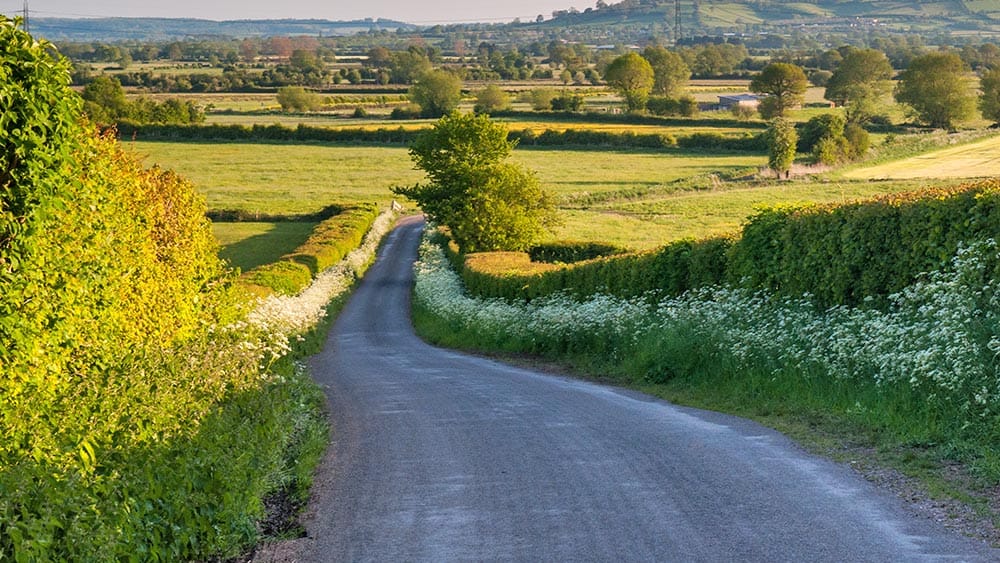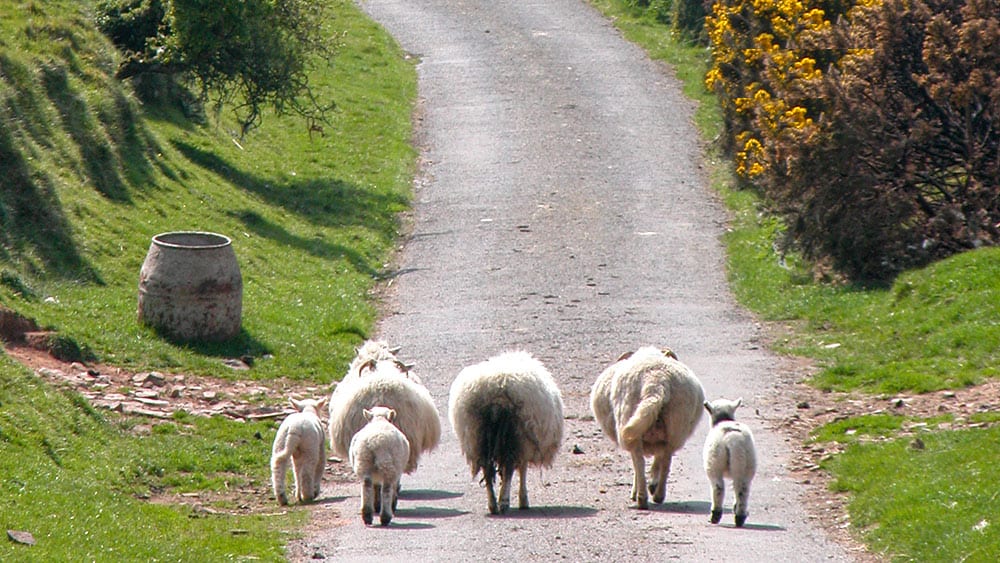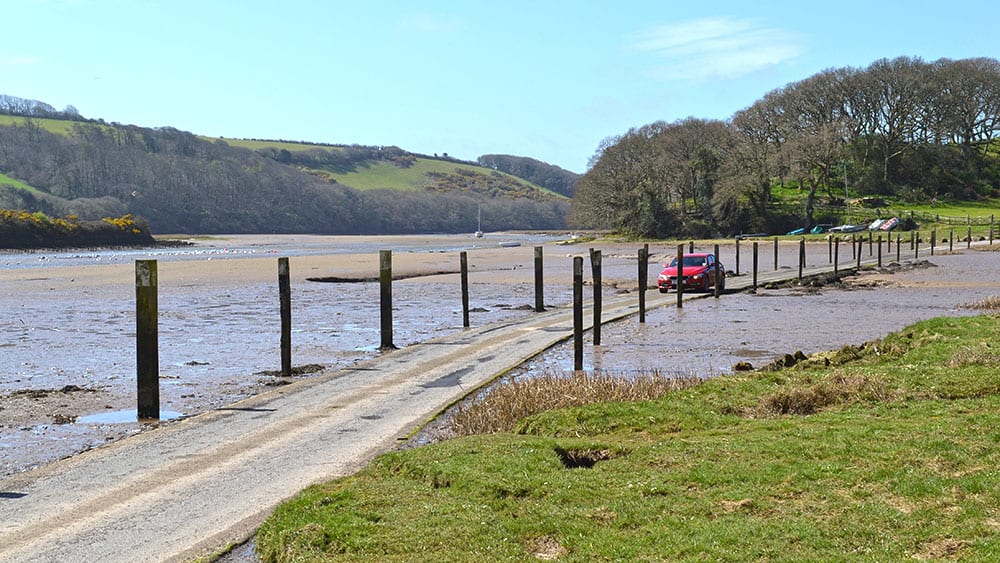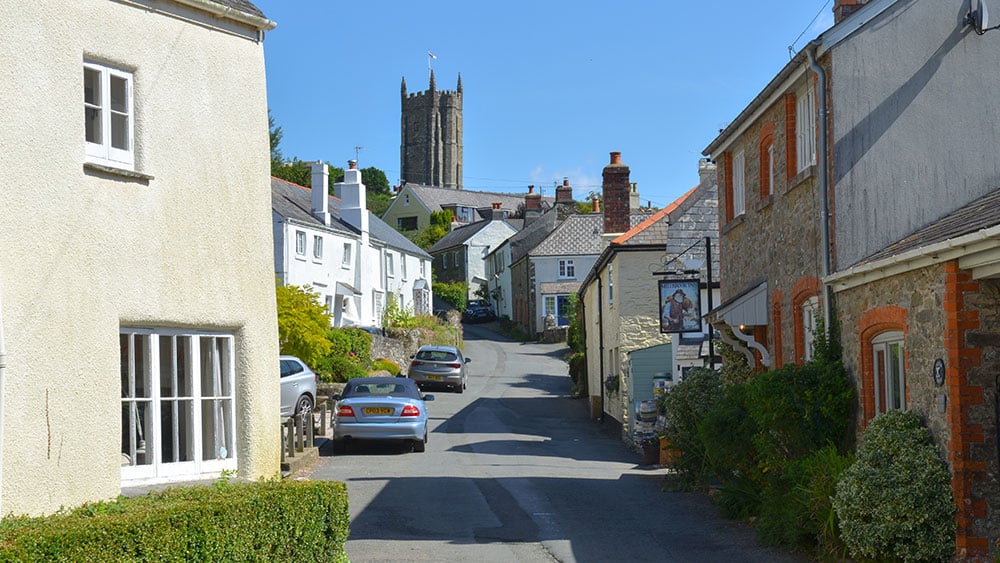Driving Tips for Devon’s Country Lanes
How to Survive the Devon Lanes
Devon has more roads than any other county in the UK, and as many of you have no doubt experienced, the majority of its characterful byways amount to not much more than narrow, winding backcountry lanes banked by thick hedgerows and with a distinct absence of anything resembling road markings.

If you’ve booked one of our gorgeous holiday cottages and are planning to travel to Devon for the very first time, you might be feeling a tad nervous about negotiating our famous primrose lanes. Let Mr Toad hop to your rescue armed with his helpful guide to Devonshire country lane driving.
Mr Toad’s seven golden rules for country lane drivers…
Think Ahead
It may sound obvious, but your ability to anticipate is very important when driving country lanes. Try to expect the unexpected and use plenty of due care and attention, particularly when cornering narrow sections. Be aware of sudden dips, crests, horse riders, livestock and also, the odd unforgiving pothole.

A couple of courteous beeps of the horn in advance of blind bends is also common practice among forward-thinking Devonians. Often, country lanes are prone to surface water due to their uneven nature, so keep a watchful eye out for standing ditch-water and take extra care during wet conditions. If an ice warning has been issued, it’s best to avoid lanes altogether as they are unlikely to have been gritted and may be hazardous. The same goes for driving country lanes at night; not an advisable time to attempt a rural route you’re unfamiliar with. If you do find yourself driving the lanes past dusk, take things slow and steady.
Route Planning & Navigation
It won’t do you any harm to plan your route before you set off so that you’re aware of any potential hazards, such as fords, humpback bridges and tidal roads. Ask a friend or family member to be your ‘navi’ and map-reader, it’s really helpful to have an extra pair of eyes to help spot those signs that are sometimes hidden away in the hedgerows.

Watch Your Speed
Don’t hare along country lanes. The national speed limit might well be 60 mph but that’s certainly not at all appropriate for country lane driving. You need to be able to stop safely when required to do so, and that might mean travelling dead slow round a narrow, sharp bend. If someone is driving too close to your bumper (tailgating), try to keep your cool and stay focused on the road ahead. Unfortunately, you’re bound to encounter one or two impatient drivers while enjoying your countryside travels, so just make sure that their impatience doesn’t affect your own decision making and judgement. If needs be, signal and pull over into a layby or wider section and allow them to pass.
Encountering Farm Vehicles
Devon is farming country, so you’ll very likely encounter agricultural vehicles, particularly during harvest season. Farmers know the lanes like the backs of their hands, and most are very tolerant towards other road users. They also very much appreciate drivers pulling into an available layby or stopping at a passing point in advance of a narrow section, allowing the farm vehicle right of way. If you are travelling behind a slow-moving agricultural vehicle, you can be sure the driver is fully aware of your presence and is likely to stop at an appropriate resting place (if there’s one available) and allow you to pass. Otherwise, slow down and maintain a sensible distance, respect the fact that day-to-day life must go on, and enjoy the beautiful Devonshire scenery.
Villages & Hamlets
Devon’s country lanes help connect the county’s rural communities, and in that respect serve a vital function. When you enter a village or hamlet remember to obey the speed restrictions, which in some cases is 20mph. Be particularly aware of school crossings, churches, shops, and bus stops. Don’t be surprised to see the odd farm dog sitting in the middle of the road, a straggle of stray sheep, or a startled pheasant: respect the local wildlife by driving sensibly. In the unfortunate event of a collision with a loose animal or livestock (that’s any animal specified in the Road Traffic Act), you are obliged to report it immediately to the police.

Approaching Horse Riders
If you should encounter horse riders you must slow right down, stopping if necessary, while paying close attention to the rider’s hand signals (this etiquette applies to all minor roadways). If the horse appears spooked or nervous, be prepared to park up and halt your engine. Never sound your horn or rev your engine when horses are approaching. If you are invited to pass, do so slowly, allowing them plenty of room (or as much as is available).
Minding Your Manners
Good manners cost nothing, as the saying goes, and smiles and thank you gestures can help defuse the most stressful of situations. If another driver has reversed their vehicle on your behalf, make sure you acknowledge the act. During the summer months, when the coastal lanes get chock-a-bloc with beach-goers, it’s important to keep your cool. You might have to tuck in your wingmirror on the odd occasion and you could well find yourself reversing back to the same layby or passing point you’ve only just returned from, such are the joys of Devon lane driving. Try to take it all in your stride and maintain your sense of humour and sunny disposition. Remember, there are a couple of extra inches available to pinch back from the hedgerow if you’re in a tight spot, so make sure you tuck in; take a deep breath and try not to flap about your bodywork because no one likes a road hog, particularly on country lanes where space is at a premium.
